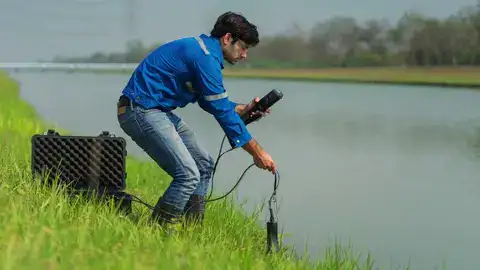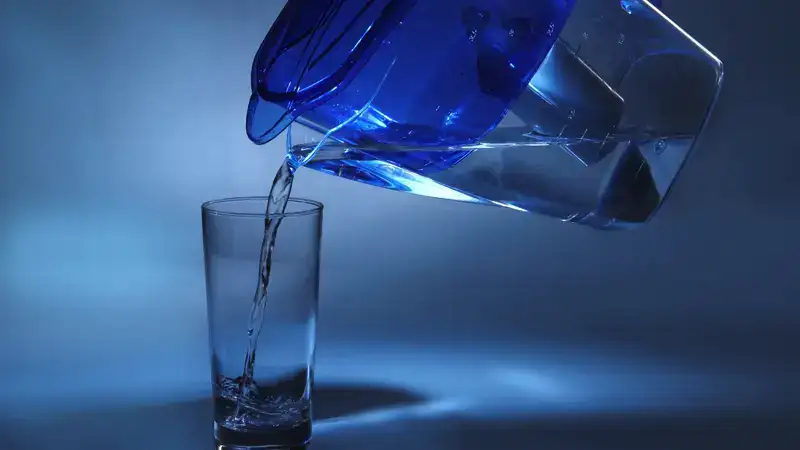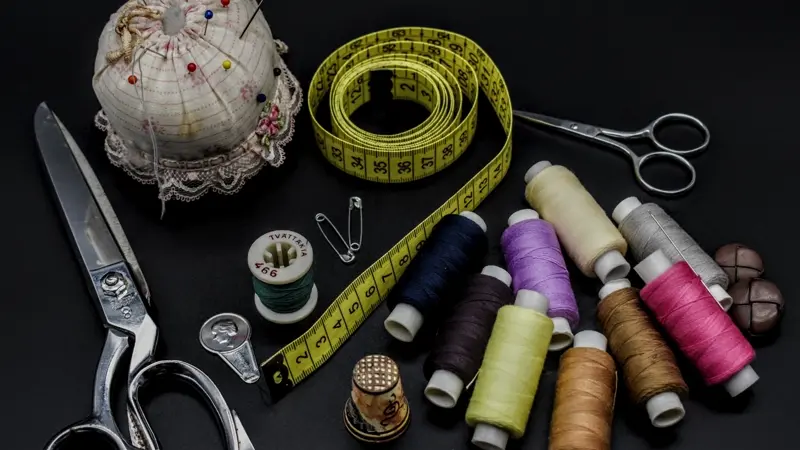For adventurers, travelers, and health-conscious individuals alike, staying hydrated is key. Yet, what do we do when the only water at hand is of dubious quality? This dilemma is solved by the revolutionary portable water filters, indispensable allies for any escapade. These filters are crucial when you’re tackling a mountainous hike, exploring an unfamiliar urban environment, or bracing for unexpected situations where access to clean water is limited. Keep an eye out for the indispensable tools that promise every drink you take is as safe and pristine as the wilderness itself, supporting your health on every step of your journey.
Table of Contents
Why Portable Water Filters are Essential
These compact yet effective devices play a crucial role in safeguarding against the multitude of invisible pathogens present in various water sources such as lakes, streams, and even local tap water in foreign countries. Encountering these harmful microorganisms, including bacteria, protozoa, and viruses, may result in health issues ranging from minor digestive discomfort to life-threatening illnesses.
For those who travel or engage in outdoor activities, having a portable water filter is essential—it secures access to drinking water that is safe, regardless of the source. This advantage proves not just convenient for people on-the-go but also vital in emergency situations where standard sources of clean water are compromised.

Types of Portable Water Filters
There is a wide range of portable water filters, each designed for different needs and preferences. Each type offers unique benefits, ensuring that you can access clean drinking water virtually anywhere in the world. By exploring the variety of portable water filters available, you can choose one that aligns with your specific hydration requirements.
1. Straw Filters: The Powerhouse Filtration in Your Pocket
Portable straw filters have greatly improved the ability for people to drink clean water on the move, especially for hikers and outdoor adventurers. These filters, though they look like ordinary straws, are equipped with sophisticated filtering technology. They typically use a hollow fiber membrane or iodine resin to remove dangerous organisms and unwanted particles from water. When a person sips through the straw, these filtering materials block pollutants, making it safe to drink from even turbid and unclear water sources.
Popular models such as the LifeStraw and Sawyer Mini are favored for their dependable performance, small size, and lightweight design which makes them easy to carry to even the most inaccessible places.
2. Pump Filters: Taste Meets Safety
Pump filters are essential for safe drinking water in outdoor adventures and emergency situations. These filters work differently from straw filters: instead of using suction, they require a hand-operated pump to push water through a precisely crafted filter. This system allows users to purify larger amounts of water quickly, making it suitable for the hydration needs of a small group. Pump filters effectively remove harmful bacteria and protozoa, thanks to the very small pore size of the filter, ensuring that water from various sources is safe to drink and free from pathogens that cause disease.
Additionally, many pump filters incorporate activated carbon, which has two benefits: it removes bad tastes and smells, making the water more pleasant to drink, and it also reduces certain chemicals in the water.

3. Squeeze Filters: Balancing Portability with Filtration Power
Squeeze filters are a smart combination of easy-to-carry convenience and practical functionality in the realm of portable water filtration. They blend the user-friendly design of straw filters with the effective purifying power of pump filters. This makes them ideal for travelers and outdoor enthusiasts who value both straightforward operation and dependable results. These devices enable users to clean water while on the move by simply squeezing a pouch filled with unclean water, propelling the liquid through a powerful filter. The clean water can be directed right into a storage container or drunk directly as it emerges from the filter.
Squeeze filters are adaptable tools, useful in a range of settings, from mountain treks to isolated campsites. Nevertheless, like any reusable filtration technology, they need regular upkeep to stay at peak performance. Routine backflushing is required to prevent blockages and maintain steady flow, prolonging the filter’s effectiveness and ensuring safe drinking water under a variety of circumstances.
4. Gravity Filters: Purifying Water with Ease
Gravity filters offer a simple yet effective solution for water purification in remote locations. They consist of one or more large containers that hold water from natural sources. These filters use gravity—a force humans have harnessed since ancient times—to draw water down through a filter that removes debris and often microorganisms. This process provides a consistent supply of clean water without the need for manual pumping, which can be tiring.
They are particularly useful for long camping trips or expeditions where a base camp is established, providing a reliable source of drinkable water. With gravity filters, adventurers and campers can devote their time to enjoying nature, assured that they have access to safe, fresh water.
5. Bottle Filters: Crystal Clear
Water filter bottles offer a convenient and mobile way to access clean drinking water. These bottles are designed with an in-built filtration system, eliminating the need for separate water purification tools. The process of using these bottles is simple; by drinking or squeezing the bottle, water passes through an internal filter, removing impurities and making it safe to drink. The complexity of these filters ranges widely. Basic models use simple carbon filters that remove odors and bad tastes.
More advanced options use sophisticated designs and materials capable of filtering out tiny threats like viruses, adding an extra level of safety against more common dangers like bacteria and protozoa.

6. UV Water Purifiers: The Invisible Shield
UV water purifiers have significantly changed water treatment practices, benefiting especially those who enjoy outdoor activities and individuals in regions lacking reliable clean water sources. Devices like the SteriPEN utilize ultraviolet light for a non-chemical purification method. This process exposes water teeming with pathogens to UV light, which incapacitates bacteria, viruses, and protozoans by damaging their DNA; this stops them from multiplying. The purification occurs rapidly, typically sanitizing one liter of water in under a minute.
However, the effectiveness of UV purifiers depends on the clearness of the water. Particulates in murky water can shield harmful organisms from the UV rays, reducing the treatment’s effectiveness. Should the water be cloudy or contain high levels of solids, pre-filtration might be necessary to ensure the UV light fully accesses and neutralizes any potential dangers, thus providing safe drinking water.
7. Ceramic Filters: Ensuring Safe Drinking Water
Ceramic water filters utilize a very fine, perforated structure to create an effective barrier against tiny impurities, including bacteria, protozoans, and some viruses that other filters may miss. The small holes dispersed throughout the filter are precisely engineered to be just large enough for water molecules to pass through while blocking larger, harmful microorganisms. This mechanical interception ensures no chemicals are used, preserving the water’s natural flavor and purity.
To enhance their effectiveness, some ceramic filters are treated with silver. Silver acts as a powerful antimicrobial substance, preventing the growth of microbes on the filter itself through its oligodynamic effect. Additionally, the strong nature of ceramic materials gives these filters a longer life than many other types of filters.
However, these filters require regular cleaning because the tiny holes can become clogged with particles over time, leading to a reduced flow rate. Regular maintenance restores their filtering capacity and maintains their efficiency in protecting against contamination. In summary, ceramic water filters represent a refined balance of simplicity and advanced technology in the realm of water purification.
8. Inline Filters: No Worries
Inline filters are an innovative development in portable drinking systems, cleverly incorporating water purification within the hydration pack’s drinking mechanism. Designed for outdoor enthusiasts who draw water from natural sources, these filters are small and light, offering a reliable stream of purified water without the need to carry additional purification devices or bottled water. When a user drinks from the tube, the water passes through multiple filtration layers – similar to those used in standalone filters – designed to remove contaminants such as bacteria, sediment, and some chemicals.
This on-demand filtration not only adds convenience but also ensures safety by reducing the chances of contracting waterborne diseases when drinking from rivers and lakes. The fact that these filters work with hydration bladders, rather than regular bottles, makes them particularly suited for individuals who value mobility and efficient packing when preparing their equipment.
9. Chemical Treatments: Emergency Purification
In situations where you can’t filter water traditionally, using portable chemical treatments such as iodine drops or chlorine dioxide tablets is an alternative for making water safe to drink. These treatments introduce chemicals that kill a wide range of disease-causing microorganisms present in dirty water. After you add these chemicals to the water, they need a specific amount of time, known as ‘contact time,’ to work against and ultimately kill the pathogens. The chemicals do this by disrupting the vital processes of these microorganisms.[1]
But these chemical methods aren’t perfect – they often leave a noticeable taste in the water, which is a reminder that chemicals have been used. Additionally, some tough protozoan cysts can survive chemical treatments, which means that sometimes it’s necessary to use chemical treatments along with physical filters to ensure that the water is entirely free from all kinds of microbial threats.

Selecting the Right Portable Water Filter
Portable water filters are essential for anyone who needs clean drinking water in places where it’s not certain the water is safe. When choosing one of these filters, it’s important to consider key factors to ensure you get a reliable one that works well. First, think about how the filter cleans the water. Different types can remove different things: some might only get rid of bacteria and tiny organisms called protozoa, while others can also capture viruses. The size of the holes in the filter, measured in microns, tells you what size particles it can block out.
You’ll also want a filter that’s easy to carry around and tough enough to last a long time. Another thing to look at is how fast the filter works; a faster flow rate means you can clean more water in less time. It should also be straightforward to use and simple to keep in good shape. But don’t forget where you’ll be using it — the type of dirt or pollutants common in the area and how easily you can find water sources there will play a big role in deciding which filter is right for your situation.

Conclusion
Choosing the right portable water filter is essential not only for compact packing but also for ensuring the safety and purity of your drinking water when you are away from civilization. By familiarizing yourself with the various types available, you can make a well-informed decision that will keep you properly hydrated during your excursions into the wild.
Add these ingenious devices to your travel gear list for reliable access to clean water wherever you go. Pick the portable water filter that best matches your needs to guarantee clean drinking water on all your travels. Remember, proper hydration is crucial; with the appropriate portable water filter, you can trust the quality of every sip you take while adventuring.


